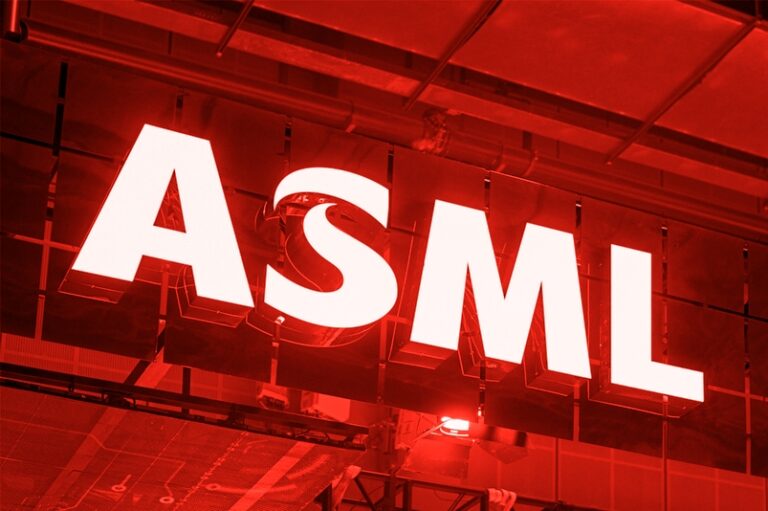The Dutch cabinet under PM Dick Schoof is going to make it even harder for ASML to serve the Chinese market. The policy shift won’t require new restrictions, but merely the expiration of licenses to service chip equipment in China.
This is according to Bloomberg, which was the first to report the development. If the licenses are not renewed, some ASML machines in China will be out of action by early 2025.
ASML exports to China have been severely curtailed for some time. EUV machines, the scanners that make the world’s most advanced chips, for example, have never entered the country. This is because the United States fears that China wants to build advanced processors to become militarily superior. The U.S. government has been pressuring the Netherlands for years to limit ASML’s operations in the country. No access to ASML means no access to making modern chips – that’s the idea, at least.
DUV equipment, which features the technological predecessor of EUV, is actively being used in China. ASML’s top-end DUV machines are still maintained by its staff in China. Without ASML, the devices don’t run; the Dutch company can even disable them remotely.
China does try
Ex-CEO Peter Wennink has always been extremely dissatisfied with China restrictions. According to him, the belief that Beijing is technologically stuck without ASML machines is only temporarily true. Restrictions, he argues, actually motivate China to stand on its own two feet. On occasion, China’s chip development appears to really be gaining momentum, only for reality set in and show just how much ground it has to cover before it can challenge properly. A real breakthrough is still a long way off, and ASML’s technological lead over the competition, Chinese or not, is huge.
China has been doing its best regardless. Some chip designs, such as Huawei’s Kirin 9000S, have pushed DUV scanners to beyond their previously assumed limits. The likes of TSMC, Samsung and Intel can rely on newer ASML tech to trounce such achievements, much to the frustration of Chinese officials.
Further curtailments
A permanent halt to maintenance of existing DUV machines would further worsen this state of affairs for China. If the equipment stops working, ASML can no longer provide support without the required licenses. How badly that disadvantages China remains to be seen, but it could have huge consequences. The country is already uncomfortable with the current restrictions and would potentially answer further curtailments with measures of its own. Examples include the further restricting of gallium and germanium exports, which are critical building materials for semiconductors. This supply is overwhelmingly dependent on Chinese mining and already only a fraction of what it once was.
For ASML, the increasingly emphatic move away from China is primarily a commercial problem. Chinese companies are now roughly half its customer base. As Europe’s most valuable tech company, a permanent end to its Chinese relationships is problematic. And if all other customers also have to tighten their belts as Intel recently did, the future suddenly looks a little bleak.
Dutch role
For a long time, Dutch Prime Minister Mark Rutte has defended himself against what he perceived as overly harsh ASML restrictions. Since ASML’s EUV equipment is built with American components, among other things, he could not offer much opposition to restrictions on it. Still, he managed so far to keep ASML’s maintenance and repair work in China possible. His successor Dick Schoof seems unable or, more likely, unwilling to do so. Even as director general of the AIVD (The Dutch equivalent of the NSA), he was an outspoken opponent of China and already warned of its threat in 2019. It’s therefore not so surprising that Schoof might see further containment of the country as a good thing.
However, the U.S. is said to have threatened to use a trump card, Bloomberg reports. The so-called Foreign Direct Product Rule (FDPR) would keep any machine with even a screw or bolt of American origin from Chinese exports. It is a heavy regulatory tool that would also hurt U.S. companies economically if triggered.
The Biden administration allegedly used the FDPR as a threat to chip companies in the Netherlands, South Korea and Japan to follow U.S. policy. Thus, it appears once again that not only the company’s native Netherlands but also the US has a big say over ASML. Yet under its new administration, the Netherlands isn’t so much buckling under the pressure as it is simply agreeing with the proposed restrictions. After all, in the form of PM Schoof, the U.S. has found a brand new ally.
Also read: Japanese technology for affordable EUV threatens ASML monopoly
